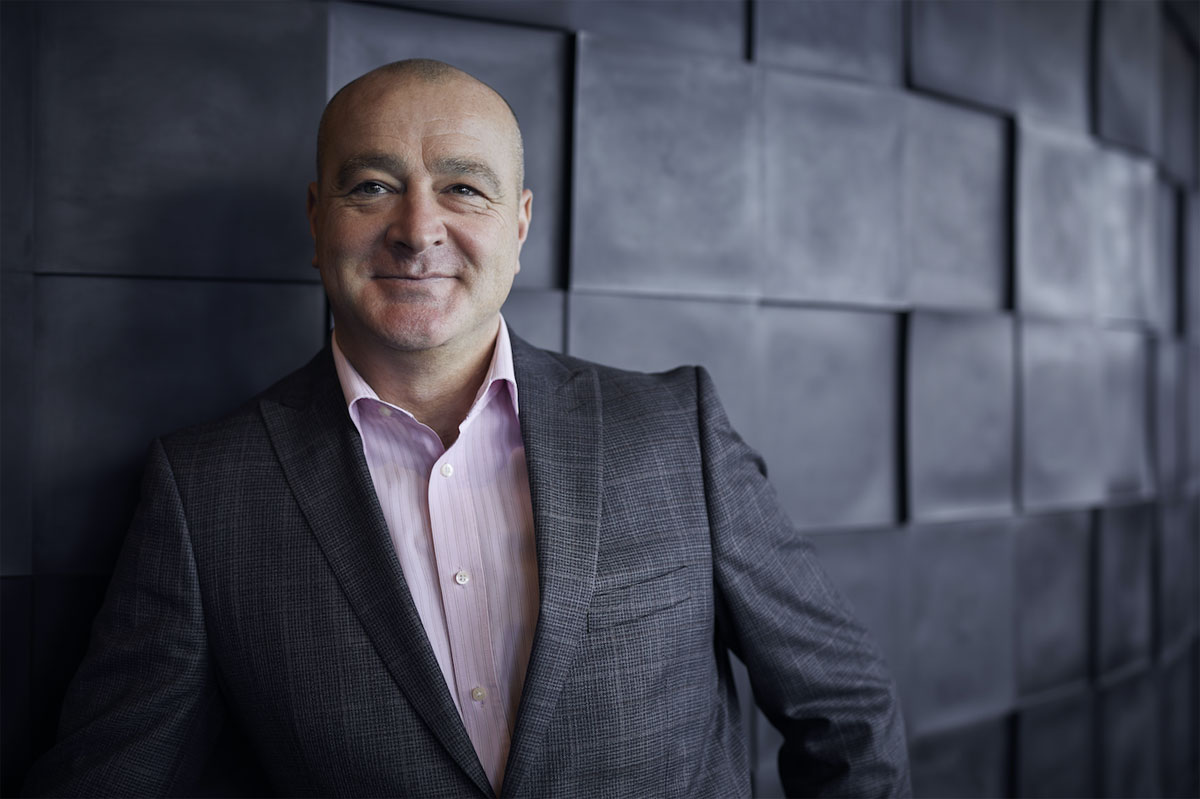Kevin Watson: Why philanthropy should be part of your business model

In a world getting smaller by the day, a shiny, polished brand with a great business track record, sophisticated working environment and great staff benefits is no longer enough to retain the best talent around today. The millennial generations expect much more from the corporate landscape and it’s now becoming commonplace for workers to make more considered decisions about who they choose to work for.
Making the careful choice about what company to join has a far greater psychological impact on people than it perhaps once had. Pride matters of course, but so does reputation and that all-important connection. It’s also part of a pride and envy dynamic, or the desire to feel connected to something bigger than oneself, to be proud to be associated with a business that cares, isn’t afraid to stand up for what it believes in and leads by its social principles. The tables have certainly turned with rising numbers of ethically-driven candidates all searching for the brightest and best companies that are focused on the bigger global picture.
Scratching the surface
Demonstrating commitment to CSR (Corporate Social Responsibility) only scratches the surface. Today, it is also about providing evidence of your intention to give something back to society – whether that means your local community or even further afield. How are you truly making a difference for the longer term? How will you ensure this focus continues to move forward? The emerging workforce expects answers to these questions and more.
Sustainability policies must equally now become evolving practices, which flex and adapt to the changing world. What it fit for purpose now, may not make the grade in three or five years’ time. Then you need to consider how you manage diversity and inclusion within the workplace to ensure equal opportunities and progression for all. Many businesses today are also looking at how they can support local charities in the wider sense as both a business and as part of their culture so as to involve their workforces in their quest to strive for a greater good.
People matter, they’ve always mattered and they are the one true differentiator in business. People value strong cultures, relationships with their peers and a trusted, loyal workplace with leadership that cares and nurtures. We all know culture and trust are in decline and many businesses face growing challenges with the rising number of those suffering with their mental health. So the onus is on businesses to be one step ahead of the game and take a more philanthropic approach to their business model.
Good will wins hearts and minds
Be the company everyone wants to become a part of. Striving for a better world only drives that objective forward because those businesses that are willing to get more involved in making a difference socially, stand to gain a great deal in terms of retention, productivity and overall success. We often hear the phrase ‘pay it forward’ or ‘you get back what you put in’ and this couldn’t be more poignant right now. Good will wins hearts and minds and it also fosters human connection and accountability too.
Businesses often find that clients are more loyal and more likely to stick with them if they take responsibility for their actions and the impact they have in the wider world. The truth is, this stuff really does matter, it’s important now and for the future. Businesses value loyalty, they want to grow teams in an environment built on mutual trust and respect, because that has a detrimental effect on retention and inevitably HR and employment costs.
Taking a more philanthropic approach to your business does mean taking a step back though. There is little point in redeveloping your CSR strategy or doing your bit for the environment if ultimately, all you are trying to do is push your own agenda. ‘Giving something back’ is not a sales tactic, it’s not the theme of your next advertisement; it has to be rooted into your culture and your ethos. If it isn’t, people will see through ulterior motives.
Clarity of intent
Making a difference is crucial for the success and the lifecycle of your business. Getting everyone else in the business onboard for the journey, then comes down to education and clarity of intent. Be clear on what it is you want to achieve, communicate that message and stick to it.
There are many pathways to give something back. Bringing greater diversity into your team and re-evaluating your recruitment processes will also in turn, create a richer learning environment within which everyone can flourish. But this kind of change has to come from the top. Leadership must believe in its cause and drive this approach with conviction. You cannot expect your staff to support and get involved in a campaign if you don’t explain first and foremost, why it matters and how it contributes socially in the wider sense. Of course, much of this is about being ‘human’, showing care, considering others and demonstrating that people are the single most important asset of any business.
By Kevin Watson, Managing Director at Amadeus
As managing director at Amadeus, Kevin has led an ambitious growth strategy since taking on the directorship in 2012. Since then, he has succeeded in doubling the turnover and tripling profits for the award-winning venue and event caterer.
About Amadeus
- Amadeus delivers catering solutions to venues and event organisers who want to provide visitors with a unique and memorable food experience.
- Unlike its competitors, Amadeus does this differently by drawing on over 40 years’ experience operating in venues and creating events as part of the NEC Group.
- The customer portfolio includes delivering catering solutions to around four million visitors per year at the NEC Group venues (the NEC, ICC, Genting Arena, Arena Birmingham and Vox Conference Centre)
- In addition, it caters for approximately 150 corporate or private events per year, including 6 major international sporting championships and at over 20 external venues.
- Its varied portfolio includes Cadbury World, Belfast Zoo, Belfast Castle, Compton Verney, Library of Birmingham and the newly contracted Stratford Racecourse among others.
- Amadeus also operates the Starbucks brand at three franchise outlets in addition to managing outlets for retail partners JD Wetherspoon, Subway, Cornish Bakery, and FCB Artisan Espresso Bars.
- With more than 1000 staff, the Amadeus team has won more than 650 awards for quality and innovation in catering.







